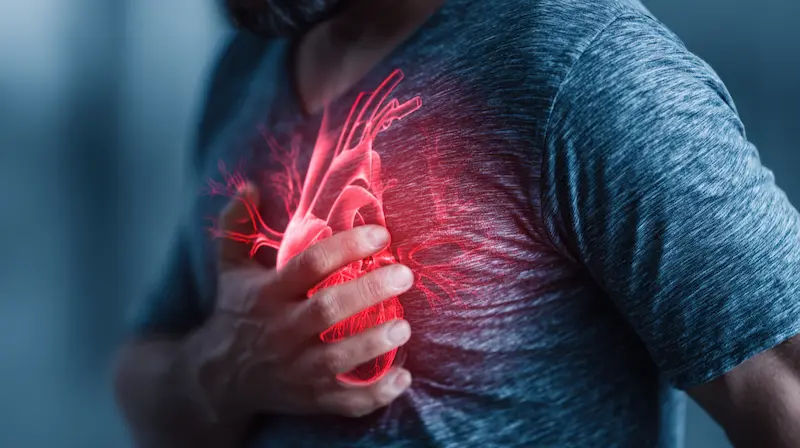- female
- 35 Years
- 20/02/2025
I'm really worried because even though I had an ECG, Echo, and a chest X-ray done about three months ago and they all showed normal results, including my SPO2 and pulse rate, I'm still experiencing pain in my left chest and left hand regularly for the past 6 to 7 months. The ECG did mention sinus tachycardia with sinus arrhythmia and a low T wave in V6. I also had Bell's palsy about a year ago but have completely recovered since then. Could all of this be connected somehow? What should I do next?
Answered by 1 Apollo Doctors
Given that your recent ECG, Echocardiogram, and chest X-ray were normal but you are still experiencing persistent left chest and hand pain, it is crucial to further investigate the cause of your symptoms. Sinus tachycardia and sinus arrhythmia noted on your ECG can sometimes be benign, but persistent pain warrants further evaluation. You should follow up with a cardiologist for a thorough review, and they may recommend additional tests like a stress test or Holter monitoring. Additionally, it might be beneficial to consider non-cardiac causes of your pain such as musculoskeletal issues or gastrointestinal problems like acid reflux. Managing stress and anxiety can also help alleviate symptoms. Please ensure you consult your healthcare provider to explore these options and manage your symptoms effectively.
Dr. Anshul Suggests...
Consult a Cardiologist
Answered 25/07/2025
0
0

More Cardiology Health Queries
View allI'm experiencing arm pain that started in my left arm, but now it's also in my right arm. I've got this weird center chest pain too. I did an ECG, echo, and some blood tests, including a thyroid test about four days ago, and everything came back normal. The doctor mentioned it might be anxiety because my heart rate was really highlike 130 bpm during the ECG and my blood pressure was 15080. I've had this fear of heart issues for months, and now the symptoms seem to have gotten worse. They gave me Betanol TR 40 to try and help. Sometimes the arm pain gets really bad, but then it goes away and comes back. It feels like pins and needles, maybe like cramps. What could this be?
It sounds like you are experiencing symptoms of anxiety and cardiophobia, which can manifest as arm pain and chest discomfort. The medication prescribed to you, Betanol TR 40, is a brand name for Propranolol. This medication can help with managing symptoms of anxiety and can also help with reducing heart rate and blood pressure. The usual dosage for Propranolol in anxiety is 20-40mg taken 2-3 times a day. It is important to follow your doctor's instructions regarding the dosage and frequency of taking the medication. If you experience worsening symptoms or have any concerns, it is important to follow up with your doctor for further evaluation and management.
Answered by 1 Apollo Doctors
I'm 26 and just got a report saying I have mild tricuspid regurgitation. I'm really worried about whether this could become moderate or even severe. How long does it usually take for this to progress? Please help, I'm pretty scared.
Tricuspid regurgitation (TR) can progress over time, but it is not possible to predict exactly how long it will take to progress from mild to moderate or severe. The progression of TR can be influenced by various factors such as underlying heart conditions, lifestyle choices, and overall health. It is important to monitor your condition regularly with follow-up appointments with your healthcare provider. In the meantime, you can discuss with your doctor about potential treatment options or lifestyle changes that can help manage TR and prevent it from worsening.
Answered by 1 Apollo Doctors
I'm really concerned about my dad's blood pressure. He's been dealing with high BP for a while, but it was stable and normal the past few days. Today it shot up to 153110 and he took his usual Tazlock 20, which has Telmisartan IP in it. Is this something we should be really worried about and what steps should we take from here?
yes you can use
Answered by 1 Apollo Doctors
Disclaimer: Answers on Apollo 247 are not intended to replace your doctor advice. Always seek help of a professional doctor in case of an medical emergency or ailment.

_0.webp)



